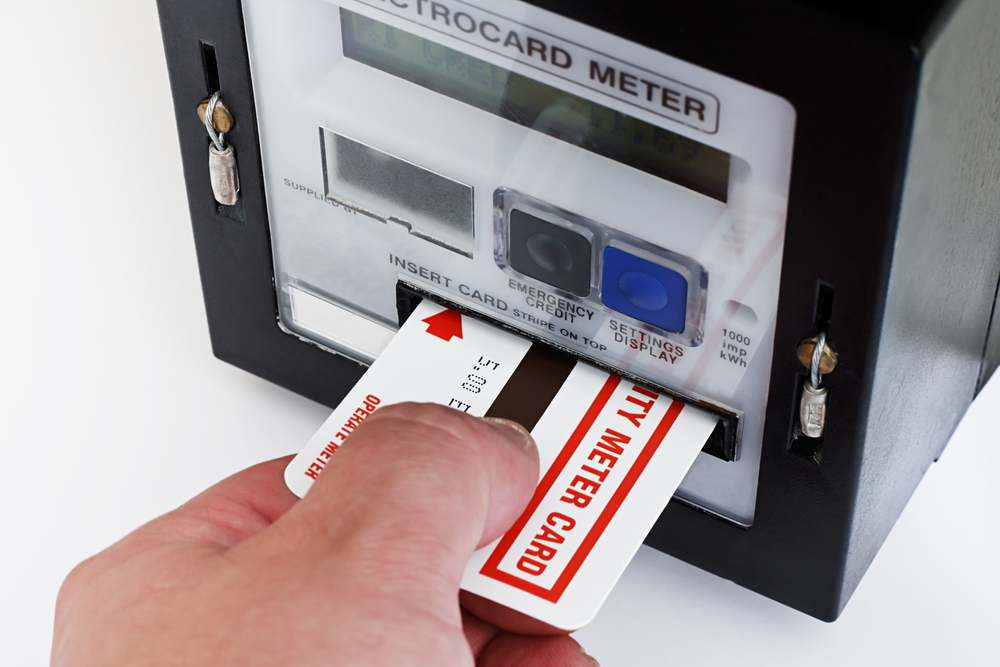Household Bills
Tighter prepayment meter installation rules set to stay

A code of conduct signed by energy firms in April relating to what they can and can’t do when it comes to forced prepayment meter installations is set to become compulsory, regulator proposals reveal.
In April, energy regulator Ofgem unveiled its updated code of practice for involuntary prepayment meter installations (PPMs) – both under warrant or remote switches without the billpayers consent.
It came in the aftermath of the scandal exposed by The Times which found third-party agents working on behalf of British Gas broke into the homes of vulnerable customers to install the pay-as-you-go meters without their knowledge or permission.
As part of the voluntary code which was signed by all providers, they were banned from installing PPMs at households with elderly (85+) occupants, as well as those who require a continuous energy supply for medical reasons. Further, at least 10 attempts to contact a billpayer must be made before a PPM is installed.
But now, Ofgem said it wants to strengthen rules to protect struggling PPM customers as it launches a consultation looking to make the code a compulsory part of suppliers’ licence conditions.
Neil Kenward, director for strategy for Ofgem, said: “We are committed to ensuring robust protections are in place for vulnerable customers. The voluntary code of practice for prepayment meters enhanced protections, setting clear rules for when a prepayment meter is or isn’t acceptable, as well as new requirements around the installation of prepayment meters.
“We are now seeking to make these voluntary arrangements binding, and we welcome all views on this statutory consultation.”
Proposals mustn’t be ‘watered down’
Gillian Cooper, head of energy policy at Citizens Advice, said: “The prepayment meter scandal must never be repeated. As energy bills rocketed, far too many people were forced onto a meter they couldn’t afford to keep topped up – often despite clear evidence they could suffer harm if their credit ran out.
“The code of practice is a much-needed improvement in the protections people have against this practice. Ofgem is right to make the code compulsory for all suppliers and it should resist any attempt to water down these proposals.
“Unless these protections are in place by winter, history could repeat itself – people who should never be on prepay coming home to a picked lock and a meter they just can’t afford to keep in credit.“
Prepayment meter price cap and ‘bad debt’ allowance
As well as this consultation, Ofgem is also proposing to set a £13 ‘allowance’ for a typical dual fuel billpayer which means energy suppliers can recover ‘bad debt’ associated with ‘additional support credit’ (ASC).
‘Additional support credit’ provides a fixed amount of credit provided to customers in a vulnerable situation when their PPM credit runs low or runs out to ensure continuity of supply.
Energy suppliers do not currently get compensated for this cost and the energy price cap doesn’t cover this so the allowance would fix this, especially at a time when energy bills have risen and levels of ASC not being repaid have risen significantly.
The £13 allowance would ordinarily mean an increase to bills, but Ofgem confirmed “it does not expect this bad debt allowance to lead to PPM customers paying more on their bills than comparable direct debit customers in 2023/24, because of the Government’s commitment to remove the PPM premium”.
At the Spring Budget, the Government committed to align charges for comparable direct debit and PPMs to ensure those on pay-as-you-go no longer pay a premium on energy bills and this will be the case until April 2024.
However, as the cost of the allowance would fall on PPM customers from April 2024, the Government has asked Ofgem to report by this autumn 2023 on options for permanently ending the PPM premium, so that a mechanism is ready for implementation in April 2024.
If such a mechanism was in place, it would spread the remaining costs related to this allowance across other payment types, not solely on PPMs. Ofgem is publishing a separate consultation on this this summer.
Kenward added: “This type of credit helps some of the most vulnerable PPM customers, by providing them with additional respite, when they are struggling the most, and prevents them from going off supply. Many of these customers may have already exhausted alternative options, such as emergency or friendly hours credit, so ASC can be critical to avoiding self-disconnection.
“Some of this credit may not be repaid, but energy suppliers do not currently get compensated for this cost – the allowance aims to fix that, ensuring suppliers have no excuse not to offer ASC to customers in need this winter. We will be monitoring levels of ASC provided by suppliers.”